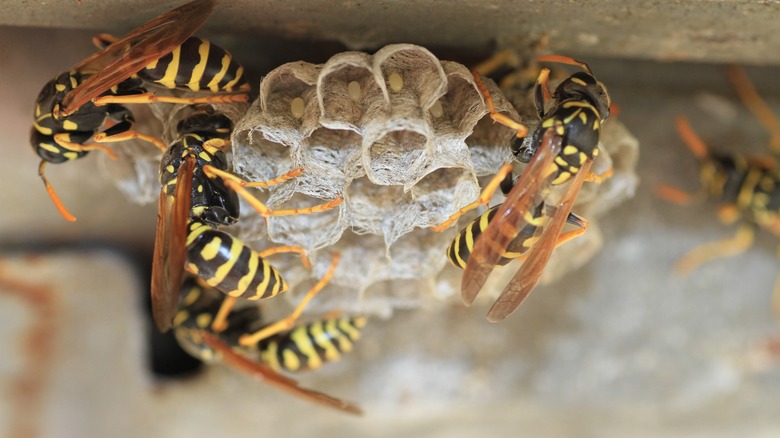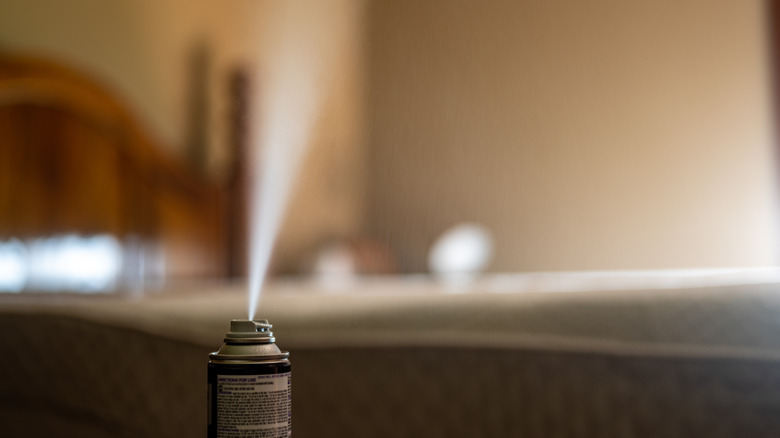Do Foggers Actually Work For Wasps? Here's What We Know
Finding a wasp nest in your attic, garage, or anywhere else inside your home can cause a harrowing feeling. While foggers may seem like a simple and easy way to get rid of the nest on your own, you should think twice before using bug bombs to solve your pest problem. When a smaller nest of wasps is situated in a spot that's difficult to reach, such as your attic, or a detached building like a shed, foggers may prove helpful; however, it depends on the location of the nest and if the pesticides can reach all the wasps.
While the foggers might be able to eliminate some wasps, they may not be the best option in every case. Additionally, these pesticide bombs can contain chemicals that can be harmful for people and pets alike. Foggers are also known to pose a risk of fire, especially when they are used improperly. Though bug bombs might be a good solution in some situations, you'll need to consider your safety as well as how effective the pesticides will actually be.
How foggers work for wasps
Bug bombs or foggers work by spraying the entire can of pesticides once you activate them. This chemical spray will then fill the room or space where the fogger was placed, coating every nearby surface. If wasps are flying in the air or if the spray gets inside their nest, the bomb should prove fairly effective.
Unfortunately, when these aggressive, stinging insects are out searching for food or hidden in the walls of your home, the fogger may not kill them all. There are lots of sneaky spots where wasps build nests around homes, but if the pesticides don't make it to the nest, the wasps will remain. With larger infestations, it can be more difficult to kill all the wasps with foggers. For smaller, less significant nests in the open space of an attic or shed, foggers could be helpful; however, with bigger infestations in harder-to-reach places, it's best to contact a professional pest control agency.
Dangers of bug foggers
If you're searching for the safest way to remove a wasp's nest from your home, foggers might not be the best solution. When you set off the bombs, it's crucial not to breathe in the chemical mist and to leave the area for a period of time after. Your home will also need to be aired out after using these foggers, making them somewhat inconvenient to use; however, they can also be hazardous. According to the Centers for Disease Control and Prevention, exposure to pyrethrin or pyrethroid, common ingredients in these pesticides, could cause illnesses, such as gastrointestinal or respiratory issues.
Aside from the possibility of inhaling harmful substances, the chemicals inside foggers are also flammable. If there's any source of flame nearby, such as the pilot light on your stove, or even a spark from electronics, these bug bombs could start a fire. Though they can be helpful for getting rid of wasps in certain cases, there are still some risks when using foggers, and they're likely not the safest solution for wasp removal.


